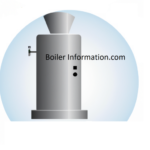Industrial boilers are essential components of many manufacturing and processing facilities. These machines generate steam or hot water, which are used to power equipment or provide heat for various applications. Choosing the right boiler size and capacity is critical for efficient operation and optimal performance. In this article, we will discuss industrial boiler sizing and capacity requirements, and provide tips for selecting the right boiler for your needs.
Factors to Consider When Sizing Industrial Boilers
Several factors influence the size and capacity of industrial boilers. These include:
Type of fuel: The type of fuel used to power the boiler affects its size and capacity requirements. For instance, natural gas-fired boilers require smaller sizes compared to coal-fired boilers.
Application: The intended use of the boiler determines its size and capacity requirements. For instance, a boiler used for heating purposes may have different sizing requirements than one used for steam production.
Heating surface area: The heating surface area is a critical factor that determines the boiler’s size and capacity. This area refers to the amount of surface area that is exposed to heat, and it is directly proportional to the amount of steam or hot water that the boiler can produce.
Operating pressure: The operating pressure of the boiler also affects its size and capacity requirements. Higher operating pressures require larger boilers with greater heating surface areas to produce the necessary steam or hot water.
Efficiency: The efficiency of the boiler is another critical factor that affects its size and capacity requirements. A more efficient boiler can produce the same amount of steam or hot water as a less efficient one, but with a smaller size and lower capacity.
Tips for Selecting the Right Boiler for Your Needs
When selecting an industrial boiler, there are several factors to consider. Here are some tips to help you choose the right boiler for your needs:
Determine the application: The first step in choosing an industrial boiler is to determine the application. This will help you determine the size and capacity requirements for the boiler.
Consider the fuel source: The type of fuel used to power the boiler will affect its size and capacity requirements. Determine the fuel source that is most readily available and cost-effective for your facility.
Choose the appropriate boiler type: There are several types of industrial boilers available, including fire-tube, water-tube, and electric boilers. Choose the appropriate type based on your application and heating requirements.
Consult with a professional: Consult with a professional boiler engineer to determine the appropriate size and capacity for your facility’s needs. They can help you determine the optimal heating surface area, operating pressure, and efficiency requirements for your boiler.
Consider future expansion: Consider the potential for future expansion when selecting an industrial boiler. Choose a boiler that can be easily expanded or modified to meet future needs.
Conclusion
Choosing the right size and capacity for an industrial boiler is critical for efficient operation and optimal performance. Several factors influence the size and capacity requirements, including the type of fuel, application, heating surface area, operating pressure, and efficiency. When selecting an industrial boiler, consider the fuel source, appropriate type, consult with a professional, and consider future expansion. By following these tips, you can select an industrial boiler that meets your facility’s heating requirements and delivers optimal performance.
